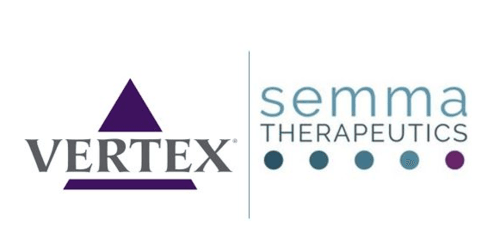
On September 3rd, Vertex Pharmaceuticals Incorporated announced an agreement to purchase Semma Therapeutics, one of the most promising and advanced companies developing components to a Practical Cure, for $950 million in cash. The press release emphasizes two major Semma scientific advances as the basis for the acquisition: 1) the ability to produce large quantities of functional human pancreatic beta cells and 2) a novel encapsulation device to protect the cells from the T1D autoimmune attack. Vertex and Semma Press Release: (Click to view)
Current Semma President Dr. Bastiano Sanna will join Vertex and continue to oversee Semma as a separate subsidiary. According to a Vertex representative, “Dr. (Douglas) Melton will continue in his role as Chairman of the Scientific Advisory Board of Directors and provide oversight and guidance on the development of these programs.”
Open Questions
The acquisition by Vertex is acknowledgement of Semma’s research advancements to date as well as its potential for future application. The purchase could present either benefit or risk to the T1D community, depending on how Vertex chooses to advance Semma’s therapies to market.
The biggest concern for the T1D community is that Vertex will use Semma’s therapies to pursue alternative applications for other, more lucrative therapeutic areas. When asked if the acquisition included any assurances to past Semma donors that all Semma-related research will be focused on the development of advances for type 1, a Vertex investor relations representative responded: “We plan to work with Semma’s scientists to advance and scale their cell therapy technology and also prepare their encapsulation device for clinical development. We believe Semma wanted to work with us because we are aligned with them and fully committed to making their potential treatment into reality for those living with type 1 diabetes.”
Another concern is Vertex’s lack of experience in the T1D space, as Semma is the company’s first venture into T1D. In large part, Vertex has focused on developing drugs for Cystic Fibrosis. The company has three CF drugs in market and a fourth anticipated for submission for FDA approval in March 2020.
On the other hand, Semma researchers will now have access to additional organizational resources and the support of a pharmaceutical company with a successful history of bringing treatments to market for patient populations with a similar size and profile to T1D. The JDCA is hopeful that these resources will help to advance Semma therapies into T1D clinical trials as fast as possible.
About Semma Therapeutics
Semma Therapeutics was founded by Douglas Melton to develop therapies for type 1 diabetes patients. The company’s biggest breakthrough came in 2014 when Melton and his colleagues published a paper in which the researchers were able to produce insulin-producing beta cells from a human embryonic stem cell line—a significant breakthrough at the time. Preclinical transplantation of these cells into animals showed positive results for both safety and efficacy. As noted in the introduction, Semma has also been developing an encapsulation device to house the cells. To date, the encapsulation device has not been tested outside of a lab setting.
About Vertex Pharmaceuticals Inc.
Vertex Pharmaceuticals, originally founded in 1989, is an international biotechnology and pharmaceutical company with headquarters in Boston, Mass.
Since its inception, the company’s focus has been Cystic Fibrosis. As noted above, Vertex has three FDA approved CF drugs, with a fourth anticipated for submission for FDA approval in March 2020. Although the CF drugs are the company’s main source of revenue, Vertex is pursuing drug development across several therapeutic areas, including but not limited to, pain management and oncology.
Vertex is perhaps most well-known in the non-profit space as the company which the Cystic Fibrosis Foundation invested $150 million for a share of the royalties of any CF treatment developed. The Cystic Fibrosis Foundation eventually sold the royalty rights for $3.3 billion.
